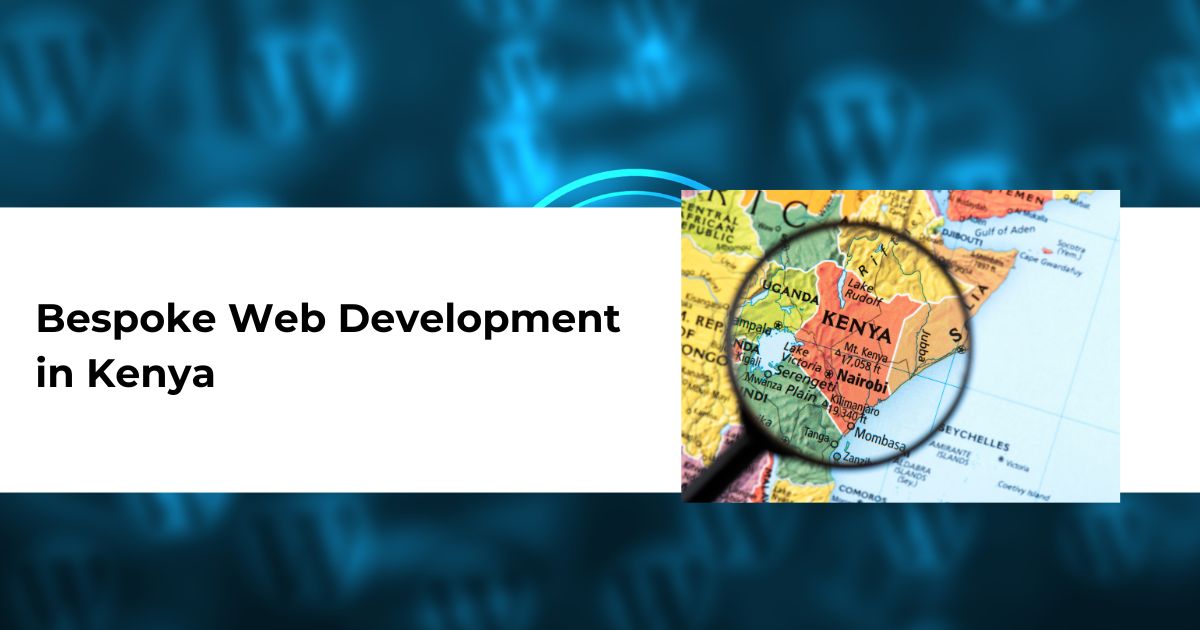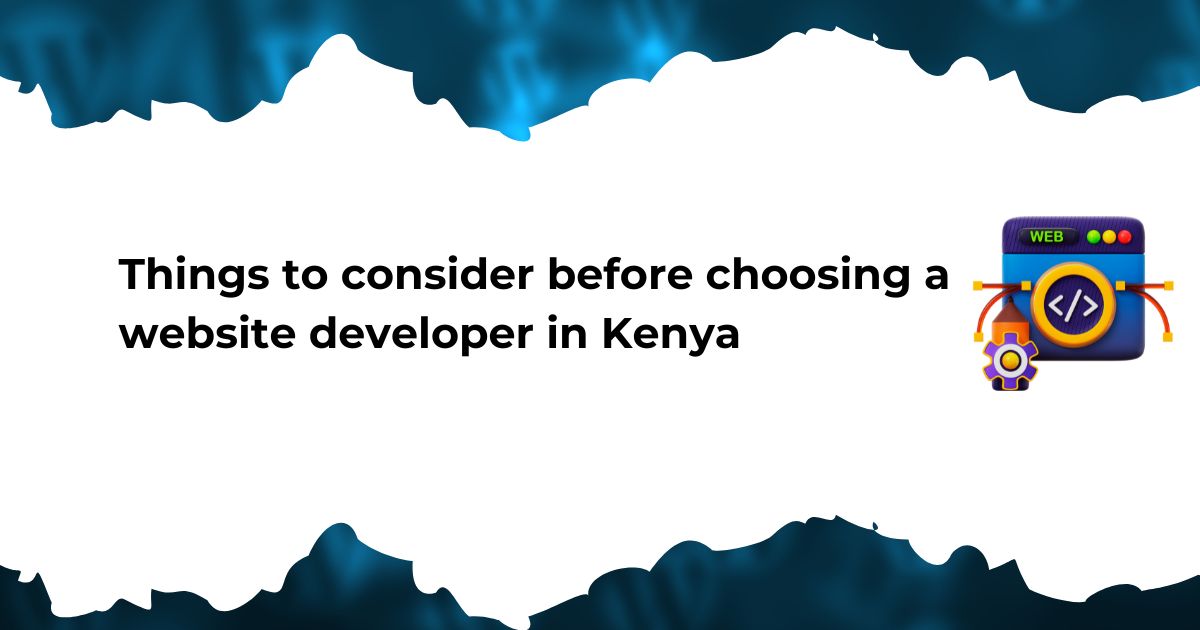In today’s digital age, having a strong online presence is essential for any business looking to thrive. If you are searching for “bespoke web development Kenya”, you are likely seeking customized web solutions that cater specifically to your unique business needs. This blog post will explore the benefits of bespoke web development, provide insights into the process, and offer practical advice on how to choose the right web development services for your business in Kenya.
Understanding Bespoke Web Development
Bespoke web development refers to creating a website that is tailored specifically to meet the unique requirements of a business. Unlike template-based solutions, bespoke development allows for greater flexibility, scalability, and customization. This means that your website can evolve alongside your business, adapting to new challenges and opportunities as they arise.
Why Choose Bespoke Web Development?
There are several compelling reasons why businesses in Kenya should consider bespoke web development:
- Customization: Tailored solutions ensure that your website reflects your brand identity and meets your specific business goals.
- Scalability: As your business grows, your website can be easily updated and expanded to accommodate new features and functionalities.
- Enhanced User Experience: A bespoke website can be designed with your target audience in mind, providing a seamless and engaging user experience.
- SEO Optimization: Custom-built websites can be optimized for search engines from the ground up, improving your visibility online.
The Bespoke Web Development Process
Understanding the process of bespoke web development can help you make informed decisions when selecting a service provider. Here’s a step-by-step overview:
1. Initial Consultation
The process begins with an initial consultation where you discuss your business goals, target audience, and specific requirements with the web development team. This is a crucial step as it sets the foundation for the entire project.
2. Planning and Strategy
Once the requirements are clear, the development team will create a detailed plan. This includes wireframes, site architecture, and a timeline for the project. In this phase, it’s important to ensure that the proposed strategy aligns with your business objectives.
3. Design and Development
After finalizing the plan, the design phase begins. Designers will create visual mockups of the website, focusing on user experience and aesthetics. Once approved, the development team will start building the site using the latest technologies and frameworks.
4. Testing and Launch
Before launching the website, it undergoes rigorous testing to identify and fix any issues. This includes functionality testing, user acceptance testing, and performance optimization. Once everything is in order, your bespoke website is ready to go live.
5. Ongoing Support and Maintenance
Post-launch, it’s essential to have ongoing support and maintenance to ensure your website remains functional and up to date. This includes regular updates, security checks, and performance monitoring. For reliable hosting solutions, consider Mick Hosting for your website’s needs.
Kenya-Specific Examples and Pricing Context
When considering bespoke web development, it’s important to understand the local market context. In Kenya, the pricing for bespoke web development services can vary widely based on the complexity of the project and the experience of the service provider. On average, you can expect to pay anywhere from KES 50,000 to KES 300,000 for a bespoke website, depending on the features required.
For example, a local startup might require a simple e-commerce site with basic functionalities, while a larger business may need a complex platform with integrated customer relationship management (CRM) systems. Understanding your budget and requirements will help you find the right service provider. For more information on e-commerce solutions, check out our E-commerce Solutions page.
Frequently Asked Questions (FAQs)
What is the difference between bespoke web development and template-based web development?
Bespoke web development involves creating a unique website from scratch that is tailored to your specific needs, whereas template-based development uses pre-designed templates that may not fully meet your requirements.
How long does it take to develop a bespoke website?
The timeline for developing a bespoke website can vary depending on the complexity of the project. Generally, it can take anywhere from a few weeks to several months to complete.
Will my bespoke website be mobile-friendly?
Yes, a professional web development team will ensure that your bespoke website is responsive and mobile-friendly, providing an optimal user experience across all devices.
What ongoing support will I receive after my website is launched?
Most reputable web development companies offer ongoing support and maintenance services, including updates, security checks, and performance monitoring to ensure your website remains functional and secure. For more details, visit our Support Services page.
Conclusion: Take the Next Step Towards Your Bespoke Website
Investing in bespoke web development is a strategic move that can significantly enhance your online presence and drive business growth. With tailored solutions designed specifically for your needs, you can create a website that not only meets but exceeds your expectations.
If you are ready to take the next step in your digital journey, consider partnering with a professional web design service that specializes in bespoke solutions. By doing so, you can ensure that your website is not only visually appealing but also functional, scalable, and optimized for success in the Kenyan market.
Contact us today to discuss your bespoke web development needs and let us help you bring your vision to life!




